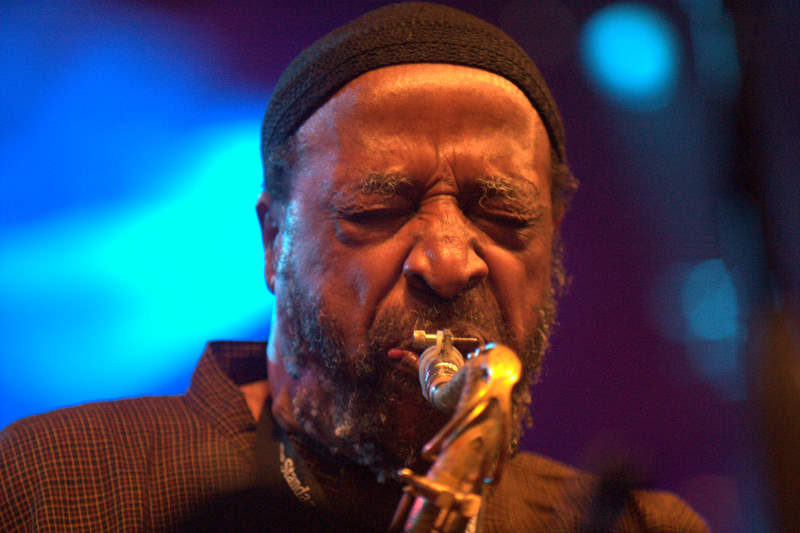Yusef Lateef

Virtuose du saxophone ténor et de la flûte, jouant de la "musique du monde" avant qu'elle n'ait de nom, Yusef Lateef a été une influence majeure pour de nombreux musiciens dont John Coltrane.
A virtuoso on tenor saxophone and flute, playing "world music" before it had a name, Yusef Lateef was a major influence for many musicians including John Coltrane.
Born William Emanuel Huddleston on October 9, 1920 in Chattanooga, Tennessee, Yusef Lateef grew up in Ohio and then in Detroit where he began playing tenor saxophone. He studied with Lucky Millinder in 1946, then played with the Hot Lips Page, Roy Eldridge and Dizzy Gillespie's big band (1949-1950). He worked briefly with Count Basie before returning to Detroit to study flute and composition at Wayne State University. In 1950, he converted to Islam (Ahmadism) and changed his name.
Yusef Lateef began recording as a leader in 1955 and moved to New York at the end of the decade. Increasingly turned towards oriental sounds, he is noticed for his virtuosity on tenor saxophone and flute, but also for his practice on oboe, bassoon and instruments from Africa and Asia. Alongside his own projects, he continues to accompany great jazzmen such as Charles Mingus, Donald Byrd, Cannonball Adderley, Miles Davis...
In 1961 his album Eastern Sounds made Yusef Lateef the ambassador of oriental jazz in the United States. His atypical sounds will influence many musicians and in particular John Coltrane.
He gradually borrowed elements of funk and blues, before moving towards "New Age" music in the 1980s. The musician won the Grammy Award for "Best New Age Album" with Yusef Lateef's Little Symphony (1987). He recorded in the 1990s with artists such as Ricky Ford, Archie Shepp, Ahmad Jamal and Von Freeman.
Deceased in 2013, Yusef Lateef is recognized as one of the pioneers of "world jazz". He received the prestigious Jazz Master Fellowship Award from the National Endowment for the Arts in 2010.
Photo credit: Tom Beetz